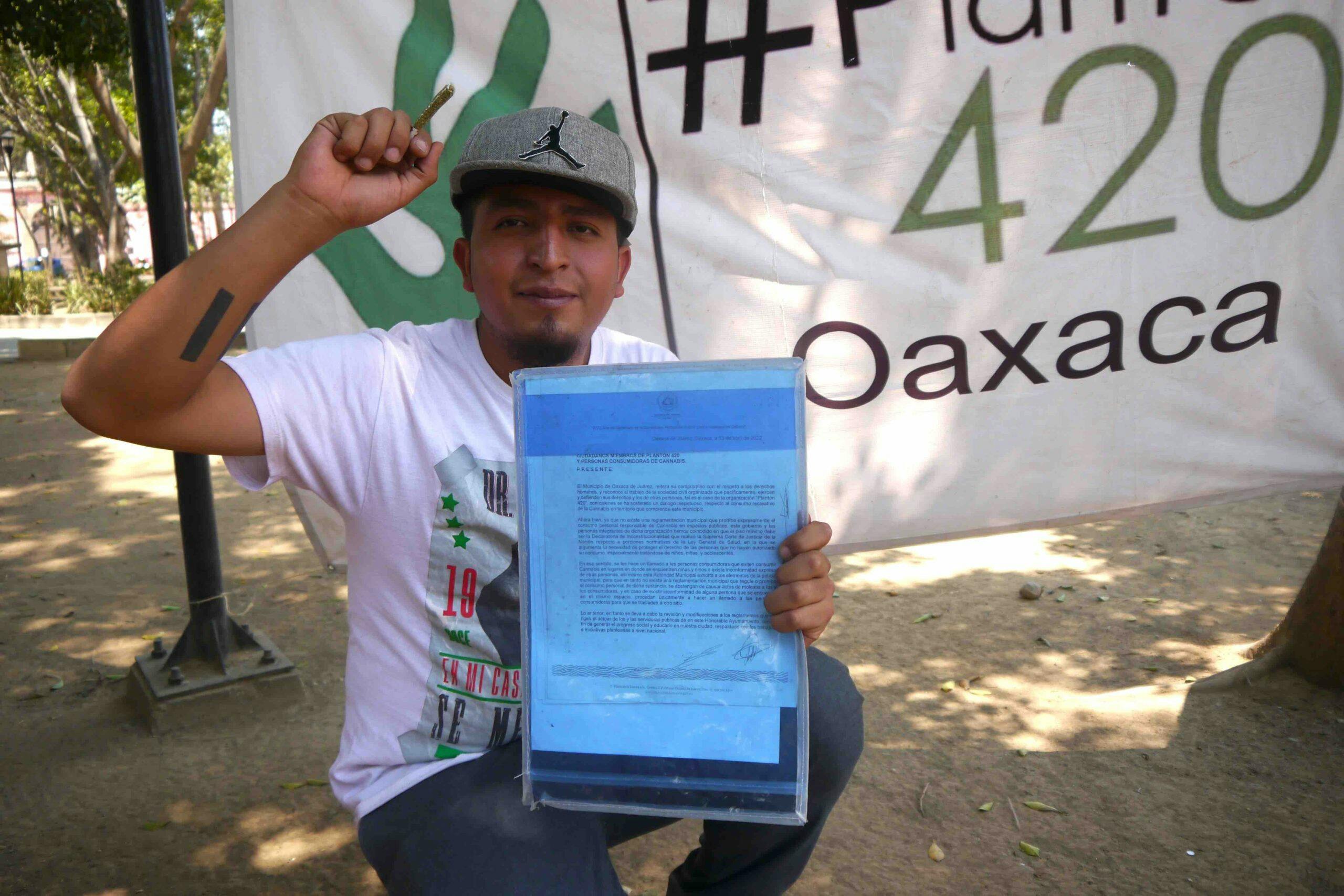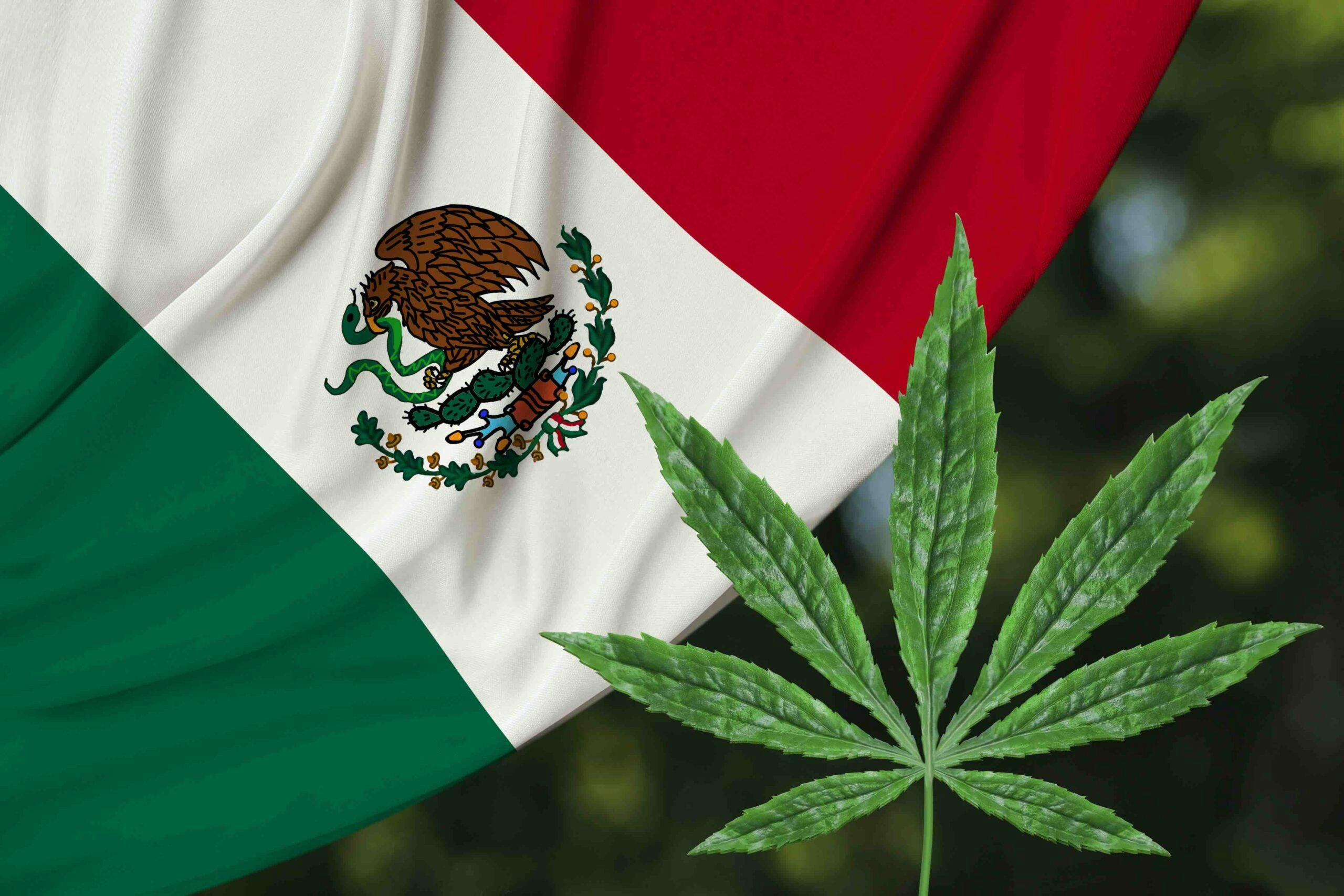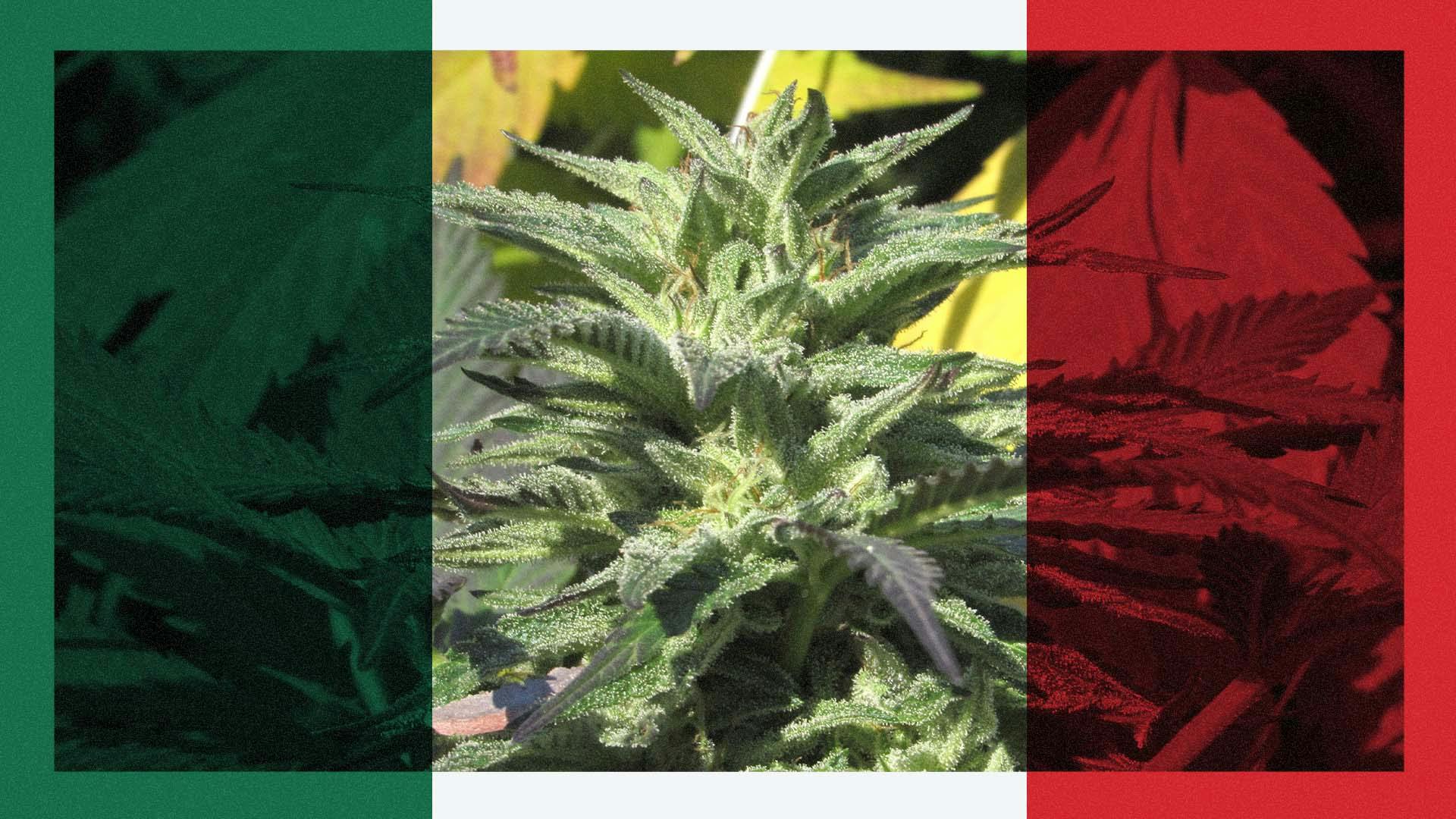Current legality status
UNSETTLED
Cannabis exists in a legal state of flux in Mexico.
Is weed legal in Mexico?
It’s complicated. Marijuana currently exists in a legal flux state in Mexico. It’s not entirely legal, but it’s not entirely illegal either.
Medical cannabis is technically legal in Mexico, but there is no legal framework in place to obtain a prescription or prove one’s own legal medical status.
Possession of up to 5 grams of cannabis for any purpose, medical or otherwise, has been effectively decriminalized nationwide, although local and federal police often do not respect this status.
Mexico’s Supreme Court has declared cannabis prohibition to be unconstitutional, but as of July 2022, Mexico’s Congress continues to struggle to pass a full legalization law that would establish the legal means to grow, sell, and possess for all adults.
Mexico recreational marijuana laws
Cannabis was originally banned in Mexico in 1920, years before federal prohibition began in the United States in 1937.
Personal possession of up to 5 grams of cannabis is effectively legal since it was decriminalized federally in 2009, along with limited amounts of a number of other drugs, by authorities seeking to free up resources and separate public health issues from traffic crimes.
People found with less than 5 grams of cannabis should, according to the law, be encouraged into free treatment programs, but in reality they are still coerced into paying police bribes to be released from custody. They are generally not prosecuted for personal amounts, though the law states that purchasing and possessing amounts in excess of 5 grams can carry prison sentences of 10 months to 3 years.
Proposals to fully legalize recreational marijuana are awaiting reintroduction to Mexico’s Senate. The nation’s lawmakers have been under pressure to pass a full legalization bill since 2015, when Mexico’s Supreme Court began handing down a series of decisions that declared cannabis prohibition unconstitutional.
Many believe 2023 could be the year the country finally adopts a full legalization law and becomes the single largest regulated market in the world.
Mexico medical marijuana laws
Mexican authorities are in the process of regulating medical cannabis (with less than 1% THC) after it was effectively legalized by decree in 2017 by Enrique Nieto, the predecessor of the current president.
Nieto’s directive said medical cannabis would be regulated by the federal health ministry. But no legal framework has yet emerged. There continues to be a void even after regulations were published in January 2021, which gave the green light to research after a 2019 Supreme Court judgment ruled that federal lawmakers must regulate medical cannabis.
Therefore, medical cannabis remains effectively impossible to access completely legally. Although there are written provisions to allow the use of imported low-THC cannabinoid compounds, those allowances are difficult to obtain. At last count, only five exemptions had been given on compassionate grounds for children with epilepsy where all other treatments had failed.
The vast majority of those who want legal access to medical cannabis must seemingly wait for pharmacies to be able to dispense licensed products. High strength tinctures and creams, however, are available at many alternative shops across the country—but they tend to be expensive.
Mexico marijuana growing laws
Marijuana has been grown in Mexico since at least the 1500s when Spanish colonists brought hemp seeds and plants with them to make rope and textiles. The indigenous population soon realized the plant’s other potential uses, which were cast as idolatrous by Spanish religious authorities. Then, like in much of the world, the cotton trade and anti-cannabis efforts emerged.
The nation’s highest court in June 2021 invalidated laws that prohibited the private use and home cultivation of recreational cannabis on human rights grounds, marking the culmination of a number of rulings that have emboldened small- to medium-size growers.
That 2021 ruling mandated the creation of a national register managed by the health ministry to grant permits to grow cannabis, as well as consume. These, of course, have yet to be implemented.
Ultimately, existing law still treats cannabis cultivation as illegal drug production. Those found guilty can face prison sentences of a minimum of eight years.
Mexico public consumption laws
Consumption in public spaces remains illegal, but a growing movement of consumers are smoking weed outdoors, while certain establishments have long tolerated the practice.
Under the latest legalization proposals—which lapsed as the parliamentary session closed in December 2021, and must be reintroduced once again—smoking cannabis would only be permitted in private spaces, and only where everyone present has consented, a provision widely considered impossible to supervise. Another controversial clause in the bill is a rule that cannabis smokers would have to install physical barriers indoors to prevent secondhand smoke from circulating.
A growing movement of consumers are smoking weed in public, and a subculture organizing cannabis cups all over the country is in the ascendance.
In 2018, the last year for which there is public data, 11,000 people in Mexico were charged for the possession of less than 100 grams of cannabis—including 2,300 adolescents, with many thousands more undoubtedly apprehended by police and forced to pay bribes even for possession of very small amounts.
There are claims that police may plant extra cannabis on a person—usually young or less privileged—found in possession so they exceed the legal five-gram limit.
Common questions about marijuana laws in Mexico
Where can marijuana be purchased in Mexico?
It can be procured on the street in a number of tourist-friendly towns and cities, such as San Cristóbal de la Casas, Puerto Vallarta, Cabo San Lucas, Oaxaca de Juárez, and on the Riviera Maya. If a street vendor of various items happens to quietly utter the word mota, that person is offering to sell cannabis on the down-low.
Street sellers are likely to propose an inflated price in the first instance, and bartering is common. Many sellers visit homes upon request. Prime products are expensive, while local produce is extremely cheap.
Are dabs popular in Mexico?
With a minority of expert consumers, yes.
How many gray-market dispensaries are in Mexico?
Not many, but their number is increasing in Mexico’s main cities, and they advertise with varying degrees of surreptitiousness on social media. Certain hip cafes and restaurants which, if they are not selling cannabis themselves, can also connect you with a local vendor.
What drugs are decriminalized in Mexico?
Possession of 2 grams of opium, 50 mg of heroin, 500 mg of cocaine, 0.015 mg of LSD, 40 mg (or a 200 mg capsule) of MDMA or speed, plus up to 5 grams of cannabis, is not criminalized—though people caught could be referred to addiction treatment. The matters remain subject to the potential discretion of a judge over whether the possession was for personal use, and they can still be jailed for up to 36 hours.
Keep up with the latest news about legalization in Mexico
You’ll want to keep current on Mexico’s laws by bookmarking Leafly politics and signing up for our newsletter.
Post last updated July 26, 2022.
By providing us with your email address, you agree to Leafly's Terms of Service and Privacy Policy.


